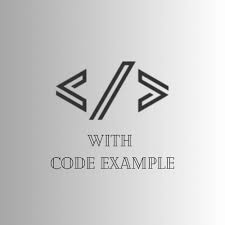Anonymous functions, also known as lambda functions or closures, are a powerful feature in Golang that offer a range of benefits. These unnamed code blocks provide developers with greater flexibility and modularity when designing and structuring their code. In this section, we’ll explore the numerous advantages that using anonymous functions can bring to your Golang projects.
1. Code Readability and Conciseness
Anonymous functions allow you to define small, self-contained pieces of code directly where they are needed. This enhances the readability of your code by keeping related logic close together, making it easier for developers to understand the purpose and functionality of the code snippet.
package main
import "fmt"
func main() {
// Anonymous function used for error handling
result, err := func() (int, error) {
// ...
return 42, nil
}()
if err != nil {
fmt.Println("Error:", err)
return
}
fmt.Println("Result:", result)
}
2. Reduced Code Duplication
By encapsulating specific behavior within anonymous functions, you can avoid duplicating code throughout your project. This leads to cleaner and more maintainable codebases, as changes or updates only need to be made in one place.
package main
import "fmt"
func main() {
numbers := []int{1, 2, 3, 4, 5}
// Using anonymous function to filter even numbers
evenNumbers := filter(numbers, func(n int) bool {
return n%2 == 0
})
fmt.Println("Even numbers:", evenNumbers)
}
func filter(numbers []int, f func(int) bool) []int {
var result []int
for _, num := range numbers {
if f(num) {
result = append(result, num)
}
}
return result
}
3. Enhanced Code Modularity
Anonymous functions enable you to create self-contained units of functionality that can be easily reused and shared across your codebase. This promotes modularity and allows you to build complex systems by composing smaller, specialized functions.
package main
import "fmt"
func main() {
greeting := func(name string) string {
return "Hello, " + name + "!"
}
fmt.Println(greeting("Alice"))
fmt.Println(greeting("Bob"))
}
4. Dynamic Behavior
Anonymous functions can capture variables from their surrounding scope, allowing you to create dynamic behavior based on runtime conditions. This is particularly useful when you need to create customized logic based on specific scenarios.
package main
import "fmt"
func main() {
x := 10
// Anonymous function capturing variable by reference
increment := func() {
x++
}
increment()
fmt.Println("Incremented x:", x)
}
5. Closure Properties
Since anonymous functions can capture variables from their surrounding scope, they exhibit closure properties. This means that they retain access to the variables even after the surrounding function has completed execution. This can be beneficial for implementing callbacks or handling asynchronous operations.
package main
import (
"fmt"
"time"
)
func main() {
fmt.Println("Start")
// Anonymous function as a simple timer
func() {
start := time.Now()
time.Sleep(2 * time.Second)
fmt.Println("Elapsed time:", time.Since(start))
}()
fmt.Println("End")
}
In conclusion, anonymous functions in Golang provide a powerful tool for enhancing code readability, reducing duplication, promoting modularity, enabling dynamic behavior, and leveraging closure properties. By incorporating anonymous functions into your codebase, you can write more concise and maintainable code while tackling complex scenarios with finesse and elegance.




